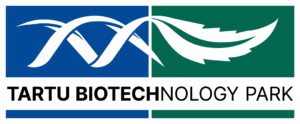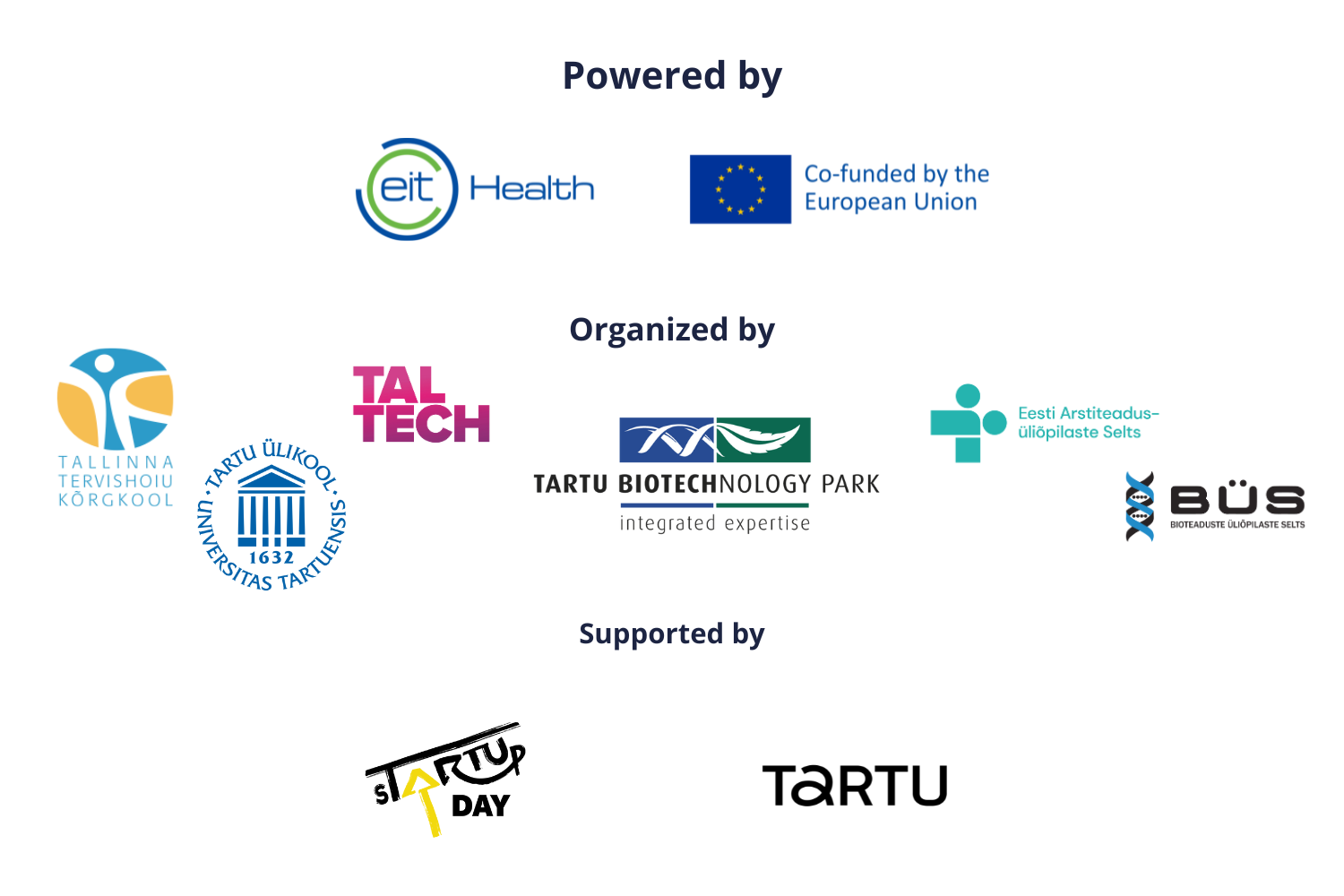Tartu i-Days 2023 on 27-28 October
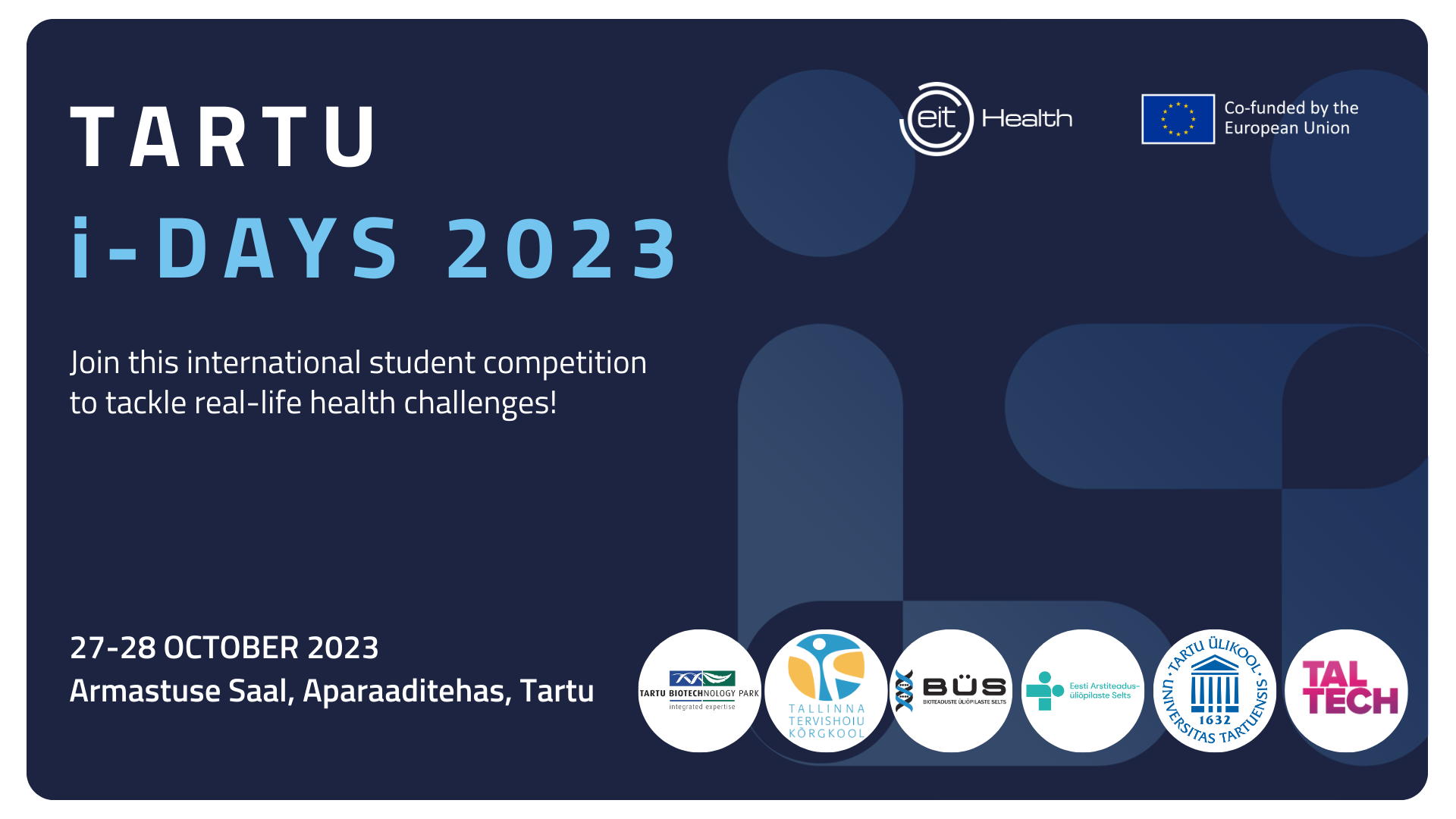 𝐖𝐞 𝐚𝐫𝐞 𝐥𝐨𝐨𝐤𝐢𝐧𝐠 𝐟𝐨𝐫 𝐚𝐬𝐩𝐢𝐫𝐢𝐧𝐠 𝐢𝐧𝐧𝐨𝐯𝐚𝐭𝐨𝐫𝐬 𝐚𝐧𝐝 𝐜𝐫𝐞𝐚𝐭𝐢𝐯𝐞 𝐭𝐡𝐢𝐧𝐤𝐞𝐫𝐬 𝐩𝐚𝐬𝐬𝐢𝐨𝐧𝐚𝐭𝐞 𝐚𝐛𝐨𝐮𝐭 𝐡𝐞𝐚𝐥𝐭𝐡 𝐚𝐧𝐝 𝐛𝐢𝐨𝐭𝐞𝐜𝐡𝐧𝐨𝐥𝐨𝐠𝐲! 𝐉𝐨𝐢𝐧 𝐮𝐬 𝐟𝐨𝐫 𝐚 𝐭𝐰𝐨-𝐝𝐚𝐲 𝐡𝐚𝐜𝐤𝐚𝐭𝐡𝐨𝐧 𝐭𝐡𝐚𝐭 𝐰𝐢𝐥𝐥 𝐩𝐮𝐭 𝐲𝐨𝐮𝐫 𝐩𝐫𝐨𝐛𝐥𝐞𝐦 𝐬𝐨𝐥𝐯𝐢𝐧𝐠 & 𝐭𝐞𝐚𝐦𝐰𝐨𝐫𝐤 𝐬𝐤𝐢𝐥𝐥𝐬 𝐭𝐨 𝐭𝐡𝐞 𝐭𝐞𝐬𝐭!
𝐖𝐞 𝐚𝐫𝐞 𝐥𝐨𝐨𝐤𝐢𝐧𝐠 𝐟𝐨𝐫 𝐚𝐬𝐩𝐢𝐫𝐢𝐧𝐠 𝐢𝐧𝐧𝐨𝐯𝐚𝐭𝐨𝐫𝐬 𝐚𝐧𝐝 𝐜𝐫𝐞𝐚𝐭𝐢𝐯𝐞 𝐭𝐡𝐢𝐧𝐤𝐞𝐫𝐬 𝐩𝐚𝐬𝐬𝐢𝐨𝐧𝐚𝐭𝐞 𝐚𝐛𝐨𝐮𝐭 𝐡𝐞𝐚𝐥𝐭𝐡 𝐚𝐧𝐝 𝐛𝐢𝐨𝐭𝐞𝐜𝐡𝐧𝐨𝐥𝐨𝐠𝐲! 𝐉𝐨𝐢𝐧 𝐮𝐬 𝐟𝐨𝐫 𝐚 𝐭𝐰𝐨-𝐝𝐚𝐲 𝐡𝐚𝐜𝐤𝐚𝐭𝐡𝐨𝐧 𝐭𝐡𝐚𝐭 𝐰𝐢𝐥𝐥 𝐩𝐮𝐭 𝐲𝐨𝐮𝐫 𝐩𝐫𝐨𝐛𝐥𝐞𝐦 𝐬𝐨𝐥𝐯𝐢𝐧𝐠 & 𝐭𝐞𝐚𝐦𝐰𝐨𝐫𝐤 𝐬𝐤𝐢𝐥𝐥𝐬 𝐭𝐨 𝐭𝐡𝐞 𝐭𝐞𝐬𝐭!What would you gain from attending the event?
![]() New skills to create solutions to real life challenges
New skills to create solutions to real life challenges
![]() Network of like-minded people
Network of like-minded people
![]() i-Days certificate that will be a great addition to your CV
i-Days certificate that will be a great addition to your CV
![]() Prizes from EIT Health and other partners
Prizes from EIT Health and other partners
![]() Winning team in the health category will get a chance to represent Estonia at European finals in Barcelona, Spain
Winning team in the health category will get a chance to represent Estonia at European finals in Barcelona, Spain
Who should register?
i-Days are accessible to all undergraduate and postgraduate students with an interest in healthcare and biotech innovation. You do not need any prerequisite skills or prior experience in innovation, entrepreneurship or healthcare. There are no academic requirements and students from all disciplines and departments are welcome to join!
REGISTER HERE: https://fluxlearning.typeform.com/to/kXr8UCcG
Ajakava
I Day | 27 October
15.00-15.30 Registration + coffee
15:30-16:00 Welcome; introduction of iDays schedule & activities
16.00- 17:30 I idea pitches, ideation and team formation
17:30-18:30 Design thinking part I – Liina Pääbo/Tartu University Hospital
18:30- … Teamwork
II Day | 28 October
9.00-9.30 Gathering and morning coffee
9.30-9:40 Wrap-up of Day 1 and Intro to Day 2, incl presentation of awards and judging criteria
9:40-10:00 Keynote – Madis Tiik/Estonian E-health Foundation – “Healthcare 2040”
What are the predictions for 2040. Latest innovations and Implication to healthcare. Success or failure of our present healthcare systems is in big part related to the developments happening in the eHealth arena. I strongly believe that technological innovation and the underlying business models can make a tremendous difference in the lives of patients and in the work of doctors in the near future. To understand the future, we need to understand the past and present.
10:00-11:00 Design thinking part II – Liina Pääbo/Tartu University Hospital
11:00-11:40 Teamwork
11:40-12:00 Keynote – Riin Ehin/Contenta Ltd, BioCC – “How to implement your innovative ideas”
What are the essential steps to implement your innovative ideas. Ensuring that your ideas remain your own. How can networking and diffrent distiplinaries lead to success. Seizing every opportunity towards establishing your start-up.
12:00-12:10 Introduction to EIT Health – Merike Leego/EIT Health
12:10-12:40 Lunch
12:40-13:10 Pitching workshop – Vaido Mikheim/Startup Estonia
13.10-15.00 Mentor rounds
14:30 – …. Coffee break
15.00-17.00 Presentations of the ideas and progress during the innovation day + jury feedback & prizes
Challenges
Tartu University Hospital’s challenges
1. How to simplify the “bureaucracy” of drug dispensing in a psychiatric clinic.
2. The second challenge is to create a convenient solution for nurses to check compatibility/incompatibility of drugs in intravenous cannulas.
Additional info: https://drive.google.com/file/d/1iY51HP6duUxjMONEGiGZ0hp80QgOGRys/view?usp=share_link
3. How to integrate/digitalize the use of patient-reported outcome measures (PROMs) in the work of the treatment team of a patient with dry eye syndrome?
Additional information (EST):
Additional information (ENG):
https://docs.google.com/document/d/16__mtDa1VMPbdi_DPY58rXVGlSPxaM0sVsCCwzdeAwg/edit?usp=sharing
The Health Insurance Fund’s challenge
4. How to make people understand that oral health is important and related to our general health? How to reach every member of society?
Oral health should not be separated from general health. Our daily oral hygiene attitudes are incomplete: approx. 2/3 of the population, including children, brush their teeth twice a day. About 65% of children go to the dentist (even though the treatment is paid for). Adults mostly turn to a specific problem, not for control. This is how oral diseases develop, which affect our general health.
The UT Institute of Molecular and Cell Biology Challenges
5. How to increase the level of immunisation of people and stop the consequences associated with its decrease?
One way to solve the problem is so that people immunise themselves and thereby reduce the chance of outbreaks. Another option is to find a reason that has led to such a situation where people do not want to immunise themselves.
Additional information 1 (EST):
https://drive.google.com/file/d/1rOu_14Vk1RZaNZTGdCswB8SKALVXrQh-/view?usp=sharing
Additional information 2 (EST):
6. How to solve problems caused by antibiotic-resistant bacteria?
This problem can also be approached in several ways. First, how to reduce the use of antibiotics both in medicine, but above all in agriculture (primarily animal husbandry). Second, the problem could be solved by creating new antimicrobial agents. Thirdly, it is possible to try to propose solutions that would make it possible to completely abandon antibiotics in the fight against bacterial infections.
Additional info (EST/abstract and references in ENG):
https://drive.google.com/file/d/1mLSOhf-xl4H-DeeT5cXToasfcxB_O4FR/view?usp=share_link
The Ministry of Social Affairs Challenges
7. How to improve the efficiency of Estonia’s Ambulance Service?
Under this topic, among other things, you can think about what types of ambulance brigades are needed in different regions of Estonia? What equipment/skill requirement is needed in an ambulance that is not yet available in Estonia? What solutions would the Estonian ambulance need to ensure (cost) efficiency and quality?
8. How to improve the quality of healthcare in rural areas?
How to solve the health workforce issue – what motivators and solutions will bring health workers to rural areas and smaller institutions and keep them there? How to effectively get the new generation to work in health care, including night shifts? What solutions are needed?
TalTech Challenges
9. The challenge is to find a wider use for the recordings used in medicine (AIDAVA project)
Ownership of your data (including medical data) is your right according to the GDPR. Yet, just having the right does not specify the method or format you can get it nor give you the ability to understand, store and easily share the data. This is especially true in case of radiological images in health care.
Objective of this challenge is to show from patient point of view how we could improve the access (costly and complicated) to medical images, store them securely (they can be very large), visualize them (special software and screens needed), make them understandable to the patient (where is the tumor, who validates a modified image) and give the possibility to share their original versions to get second opinions from physicians and provide material to researchers all over the world for better health outcomes.
10. How to reduce overweight in school-aged children?
The prevalence of overweight and obesity among Estonian children has notably increased during recent years. A survey conducted by the Estonian National Institute for Health Development (TAI) reveals that a total of one in five 11-15 year-olds are overweight. It means that the number of overweight or obese children in Estonia threatens to bring a concomitant rise in the number of adults suffering health problems in the future. The data shows that more and more school children are struggling with being overweight, or even with obesity. What solutions would help solve this challenge?
11. How to involve patients in the collection and use of medical data (and how to connect the information and health data obtained from patient apps to the electronic desktop of the doctor – especially the family doctor)?
Electronic health records (EHR) have traditionally been available only to healthcare professionals, being mainly a communication and documentation tool between healthcare professionals. However, Patient-generated health data (PGHD) can provide valuable insights into a patient’s health journey, contributing to better care and treatment. The objective is to promote collaboration, improve communication, and create a more patient-centered healthcare experience. The solution should bridge the gap between healthcare professionals and patients, transforming EHRs into a collaborative tool that benefits both parties.
UN Sustainable Development Goal no. 3 challenge
12. Find solutions to ensure healthy lives and promote well-being for all at all ages.
Challenges under this theme range from core medicine topics to healthy living & active aging, from early diagnosis and prevention to innovative gadgets that support healthcare delivery in the home, improve workplace health, and other similar solutions that enable us to live longer, healthier lives.
Facililtators
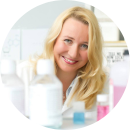 Riin Ehin (SPEAKER/MENTOR), MSc in Mathematics and Life Sciences and an MSc in Biology has been active in a wide field of bio-entrepreneurship.
Riin Ehin (SPEAKER/MENTOR), MSc in Mathematics and Life Sciences and an MSc in Biology has been active in a wide field of bio-entrepreneurship.
Riin served as the director of the Cancer Research Technology Center, where she spearheaded a project focused on developing novel cancer therapeutics and diagnostic platforms.
In addition, Riin possesses an extensive track record of leading and directing biotechnology companies including InBio AS and the Estonian Biotechnology Association. Riin is the founder, member of the board and CEO of Contenta Ltd, a company developing technology for novel oral vaccines. She is in the process of PhD studies at Tallinn University of Technology and BioCC Ltd. Her supervisors are prof. Andres Metspalu, prof. Peeter Ross and Epp Songissepp. Her future PhD thesis will bring together the knowledge of genetics, microbiology and public health information systems.
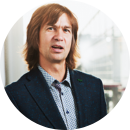 Madis Tiik MD, PhD (SPEAKER), is a 57-year-old active family doctor, entrepreneur and health innovator. Madis has been involved in eHealth development in Estonia since 2002.
Madis Tiik MD, PhD (SPEAKER), is a 57-year-old active family doctor, entrepreneur and health innovator. Madis has been involved in eHealth development in Estonia since 2002.
He has been blessed to be part of some very smart teams with whom they have built great organizations that change the fundamentals of the healthcare sector by making it more accessible and personal. He helps governments and businesses shift paradigms.
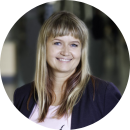 Merike Leego (SPEAKER/MENTOR/JURY MEMBER) is Innovation Lead at EIT Health, the European Commission funded network that promotes innovation in health sector and brings together stakeholders to implement close-to-market-ideas into everyday healthcare via supporting its financial instruments. Merike Leego has extensive experience in coordinating scientific research projects. She has held position of Marketing Manager and Intellectual Property Manager in several biotech companies in Estonia, and she also reads lecture on bio-entrepreneurship at University of Tartu.
Merike Leego (SPEAKER/MENTOR/JURY MEMBER) is Innovation Lead at EIT Health, the European Commission funded network that promotes innovation in health sector and brings together stakeholders to implement close-to-market-ideas into everyday healthcare via supporting its financial instruments. Merike Leego has extensive experience in coordinating scientific research projects. She has held position of Marketing Manager and Intellectual Property Manager in several biotech companies in Estonia, and she also reads lecture on bio-entrepreneurship at University of Tartu.
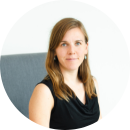 Liina Pääbo (DESIGN THINKING COACH) is a healthcare project manager and service designer. For the past years I have focused on designing better stroke and cancer care pathways but also teaching and using service design methodology in Tartu University Hospital.
Liina Pääbo (DESIGN THINKING COACH) is a healthcare project manager and service designer. For the past years I have focused on designing better stroke and cancer care pathways but also teaching and using service design methodology in Tartu University Hospital.
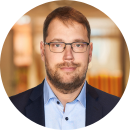 Vaido Mikheim (MODERATOR/PITCHING COACH) – As a lifelong sci-fi fan Vaido trusts that the combination of humans, science, and tech is the path to sustainable prosperity. For the last decade Vaido lives and breathes the startup scene in Estonia. He’s eager to talk about transition from science to business, and how to enable it. Today he pioneers Estonian deep tech startup ecosystem onwards as Deep Tech Project Lead at Startup Estonia.
Vaido Mikheim (MODERATOR/PITCHING COACH) – As a lifelong sci-fi fan Vaido trusts that the combination of humans, science, and tech is the path to sustainable prosperity. For the last decade Vaido lives and breathes the startup scene in Estonia. He’s eager to talk about transition from science to business, and how to enable it. Today he pioneers Estonian deep tech startup ecosystem onwards as Deep Tech Project Lead at Startup Estonia.
 Anna Dudkina (MENTOR) has graduated from Digital Health MSc in 2020. She has clinical work experience from working as a children physiotherapist at Tallinn Children’s Hospital and myofunctional therapist at Meliva/Unimed Dental Clinic for 6 years. During the clinical work she was attending a lot of different workshops abroad, where she had the opportunity to get to know the health information systems of different countries.
Anna Dudkina (MENTOR) has graduated from Digital Health MSc in 2020. She has clinical work experience from working as a children physiotherapist at Tallinn Children’s Hospital and myofunctional therapist at Meliva/Unimed Dental Clinic for 6 years. During the clinical work she was attending a lot of different workshops abroad, where she had the opportunity to get to know the health information systems of different countries.
Now she is working as a sales and marketing assistant at Dermtest, which is digital toolbox for multi-purpose medical photo management. In addition, she is working at TalTech E-Med Lab as a project manager in NORDeHEALTH project which concentrates on patient portals, patient accessible electronic health record and patient empowerment. Moreover, during the spring 2023 Anna took different courses in Coursera (data analysis; project management; IT support) in order to improve her knowledge in these fields and to develop further her digital service development skills.
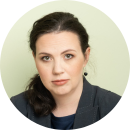 Epp Reedik (MENTOR) received her master’s degree in psychology in University of Tartu and graduated Tallinn University with a health promotion degree. Epp has worked in the youth field for a long time. She has launched and developed several new services in youth work and developed innovative solutions to empower young people. Now Epp works as a lecturer and head of the curriculum at Tallinna Health Care College. Epp cares a lot about human development and determinants that influence human behavior.”
Epp Reedik (MENTOR) received her master’s degree in psychology in University of Tartu and graduated Tallinn University with a health promotion degree. Epp has worked in the youth field for a long time. She has launched and developed several new services in youth work and developed innovative solutions to empower young people. Now Epp works as a lecturer and head of the curriculum at Tallinna Health Care College. Epp cares a lot about human development and determinants that influence human behavior.”
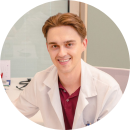 Dr Karl-Sander Nool (MENTOR) is a general physician currently working at an innovative-minded company called Terviseagentuur, where he mainly focuses on treating primary care patients. Additionally, he works at an emergency medical ward at South-Estonian Hospital, facing different problems surrounding mostly critically ill patients. Having experienced both primary and emergency care, he is focused on tackling challenges separately and simultaneously affecting these two sides of medical field. Karl is passionate about integrating novel digital solutions into healthcare and is a firm believer that there’s a lot more to discover to provide patients faster, simpler, and most efficient solutions to their health problems in the future.
Dr Karl-Sander Nool (MENTOR) is a general physician currently working at an innovative-minded company called Terviseagentuur, where he mainly focuses on treating primary care patients. Additionally, he works at an emergency medical ward at South-Estonian Hospital, facing different problems surrounding mostly critically ill patients. Having experienced both primary and emergency care, he is focused on tackling challenges separately and simultaneously affecting these two sides of medical field. Karl is passionate about integrating novel digital solutions into healthcare and is a firm believer that there’s a lot more to discover to provide patients faster, simpler, and most efficient solutions to their health problems in the future.
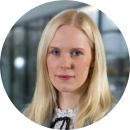 Kerli Norak (MENTOR), MSc, is a project manager in the Health Care sector focused on data management. Kerli has studied and written about Estonian decision support system regarding drug-to-drug interactions; supervised master´s theses and been involved in multiple EU funded projects on topics such as public health and prevention, integrated care, health analytics and using AI & patient involvement in health data curation. Currently working as a product manager in North Estonia Medical Centre and Health Data Analyst in TalTech.
Kerli Norak (MENTOR), MSc, is a project manager in the Health Care sector focused on data management. Kerli has studied and written about Estonian decision support system regarding drug-to-drug interactions; supervised master´s theses and been involved in multiple EU funded projects on topics such as public health and prevention, integrated care, health analytics and using AI & patient involvement in health data curation. Currently working as a product manager in North Estonia Medical Centre and Health Data Analyst in TalTech.
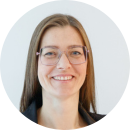 Kristi Mõistus (JURY MEMBER) is teaching Health Promotion in Tallinn Health Care College and doing her Masters in Change Management in Society in Tartu University. Within her working years, she has been active on various fields, mostly focusing on Health Promotion, voluntary work, human rights, trainings, youth work and formal/ non-formal education. She herself has also graduated Health Promotion in Tallinn Health Care College in 2013, as to now she has a good opportunity to share her knowledge with the future specialists. In 2007 she has also graduated Sports Science in Tallinn University, while spending a semester in Denmark. After her studies in Health Promotion, she was busy with working on the youth field for several years, focusing on non-formal education and trainings in Estonia and abroad. Also, she worked in Tallinn Sports and Youth Department as a detached youth work specialist. Having specialized in different topics within years, it almost feels like she has lived several lives within one. As to that, she believes in the possibility of change and growth, in one´s lifestyle, habits and skills. Kristi is passionate about travelling, photography, health, behavioural change and innovation.”
Kristi Mõistus (JURY MEMBER) is teaching Health Promotion in Tallinn Health Care College and doing her Masters in Change Management in Society in Tartu University. Within her working years, she has been active on various fields, mostly focusing on Health Promotion, voluntary work, human rights, trainings, youth work and formal/ non-formal education. She herself has also graduated Health Promotion in Tallinn Health Care College in 2013, as to now she has a good opportunity to share her knowledge with the future specialists. In 2007 she has also graduated Sports Science in Tallinn University, while spending a semester in Denmark. After her studies in Health Promotion, she was busy with working on the youth field for several years, focusing on non-formal education and trainings in Estonia and abroad. Also, she worked in Tallinn Sports and Youth Department as a detached youth work specialist. Having specialized in different topics within years, it almost feels like she has lived several lives within one. As to that, she believes in the possibility of change and growth, in one´s lifestyle, habits and skills. Kristi is passionate about travelling, photography, health, behavioural change and innovation.”
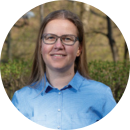 Liina Joller-Vahter (MENTOR/JURY MEMBER) is the founder of the biotech company Power Algae. Their photobioreactors are designed for growing microalgae in Nordic climate and further, the biomass is a valuable source for food, feed, cosmetics, and other industries. Besides being an entrepreneur, Liina is also lecturing the courses of bio-entrepreneurship and innovation management at the University of Tartu.
Liina Joller-Vahter (MENTOR/JURY MEMBER) is the founder of the biotech company Power Algae. Their photobioreactors are designed for growing microalgae in Nordic climate and further, the biomass is a valuable source for food, feed, cosmetics, and other industries. Besides being an entrepreneur, Liina is also lecturing the courses of bio-entrepreneurship and innovation management at the University of Tartu.
 Martin Argus (MENTOR) is a research advisor at Tallinn Health Care College, a board member of the Estonian Association of Physiotherapists, and most recently, the founder and physiotherapist at Valukliinik, the first pain physiotherapy clinic in Estonia. Martin holds a Master’s degree in physiotherapy and a PhD in exercise and sport sciences. With a background in occupational health, he has conducted his research in the field of work-related pain. Martin also imparts his knowledge to master-level physiotherapists at the University of Tartu, focusing on evidence-based pain management. He is an active member of the European Pain Federation (EFIC) and the International Association for the Study of Pain (IASP). Martin strongly advocates for the fusion of research and practice, emphasizing the necessity of a more data-driven approach in healthcare.
Martin Argus (MENTOR) is a research advisor at Tallinn Health Care College, a board member of the Estonian Association of Physiotherapists, and most recently, the founder and physiotherapist at Valukliinik, the first pain physiotherapy clinic in Estonia. Martin holds a Master’s degree in physiotherapy and a PhD in exercise and sport sciences. With a background in occupational health, he has conducted his research in the field of work-related pain. Martin also imparts his knowledge to master-level physiotherapists at the University of Tartu, focusing on evidence-based pain management. He is an active member of the European Pain Federation (EFIC) and the International Association for the Study of Pain (IASP). Martin strongly advocates for the fusion of research and practice, emphasizing the necessity of a more data-driven approach in healthcare.
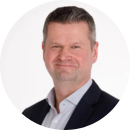 Sven Parkel (MENTOR/JURY MEMBER) is the General Secretary of the ScanBalt network, which builds and supports the health tech ecosystem in the Baltic Sea Region. He also is the General Manager of the Tartu Biotechnology Park (TBP). His work in TBP supports local businesses and startups in health tech, biotechnology and other areas offering opportunities through project funding through EU and business development in an incubation program.
Sven Parkel (MENTOR/JURY MEMBER) is the General Secretary of the ScanBalt network, which builds and supports the health tech ecosystem in the Baltic Sea Region. He also is the General Manager of the Tartu Biotechnology Park (TBP). His work in TBP supports local businesses and startups in health tech, biotechnology and other areas offering opportunities through project funding through EU and business development in an incubation program.
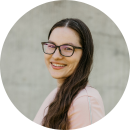 Riina Hallik (MENTOR) is a lecturer, master thesis supervisor, methodological advisor and thesis committee member at TalTech Digital Health curriculum. She is a registered nurse and after BA in Economics with a specialization to Management gained two master’s degrees- a MMS in Health economics, policy and management from Karolinska Institutet, and MSc cum laude in Health Care Technology from TalTech. She has over 12 years of diverse experience in national and international research projects within telemedicine field, developing multiple digital health startups, and serving on advisory boards. Her passion lies in bridging scientific methods and innovation in digital health, particularly in impact assessment.
Riina Hallik (MENTOR) is a lecturer, master thesis supervisor, methodological advisor and thesis committee member at TalTech Digital Health curriculum. She is a registered nurse and after BA in Economics with a specialization to Management gained two master’s degrees- a MMS in Health economics, policy and management from Karolinska Institutet, and MSc cum laude in Health Care Technology from TalTech. She has over 12 years of diverse experience in national and international research projects within telemedicine field, developing multiple digital health startups, and serving on advisory boards. Her passion lies in bridging scientific methods and innovation in digital health, particularly in impact assessment.
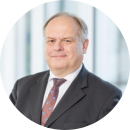 Tanel Ross (MENTOR/JURY MEMBER) is currently an active advisor in Estonian Ministry of Finance and TalTech. Mr. Ross is the former Chairman of Estonian Health Insurance Fund (EHIF) and has built a strong track record in financial, economic and health policy design and implementation, promoting culture of change, science-based innovation, and management of people and teamwork. In addition to EHIF, he has a wide knowledge base from working in major public sector institutions, such as Estonian central bank, Ministry of Finance and the IMF. He has also worked as an advisor for health care system reform in Bahraini Supreme Council of Health. His duties have also included continuous involvement and interaction with private sector counterparts.
Tanel Ross (MENTOR/JURY MEMBER) is currently an active advisor in Estonian Ministry of Finance and TalTech. Mr. Ross is the former Chairman of Estonian Health Insurance Fund (EHIF) and has built a strong track record in financial, economic and health policy design and implementation, promoting culture of change, science-based innovation, and management of people and teamwork. In addition to EHIF, he has a wide knowledge base from working in major public sector institutions, such as Estonian central bank, Ministry of Finance and the IMF. He has also worked as an advisor for health care system reform in Bahraini Supreme Council of Health. His duties have also included continuous involvement and interaction with private sector counterparts.
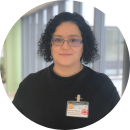 Teele Orgse (MENTOR/JURY MEMBER) is a medical doctor, certified quality manager, certified patient safety executive office and has a Master’s in Social Policy. She is currently working as a Chief Quality Officer in Pärnu Hospital and as a lecturer at TalTech. She has previously worked at the Ministry of Social Affairs, Estonian Health Insurance Fund, East-Tallinn Central Hospital and North-Estonian Medical Center. She is parallelly working in Finland as an emergency medicine doctor.Teele is passionate about healthcare quality, patient safety and hospital management. Her special interests include systems’ management and process design. She has worked in health care quality and patient safety sector since 2002. For the past 10 years these themes have intertwined with local and national IT development.
Teele Orgse (MENTOR/JURY MEMBER) is a medical doctor, certified quality manager, certified patient safety executive office and has a Master’s in Social Policy. She is currently working as a Chief Quality Officer in Pärnu Hospital and as a lecturer at TalTech. She has previously worked at the Ministry of Social Affairs, Estonian Health Insurance Fund, East-Tallinn Central Hospital and North-Estonian Medical Center. She is parallelly working in Finland as an emergency medicine doctor.Teele is passionate about healthcare quality, patient safety and hospital management. Her special interests include systems’ management and process design. She has worked in health care quality and patient safety sector since 2002. For the past 10 years these themes have intertwined with local and national IT development.
